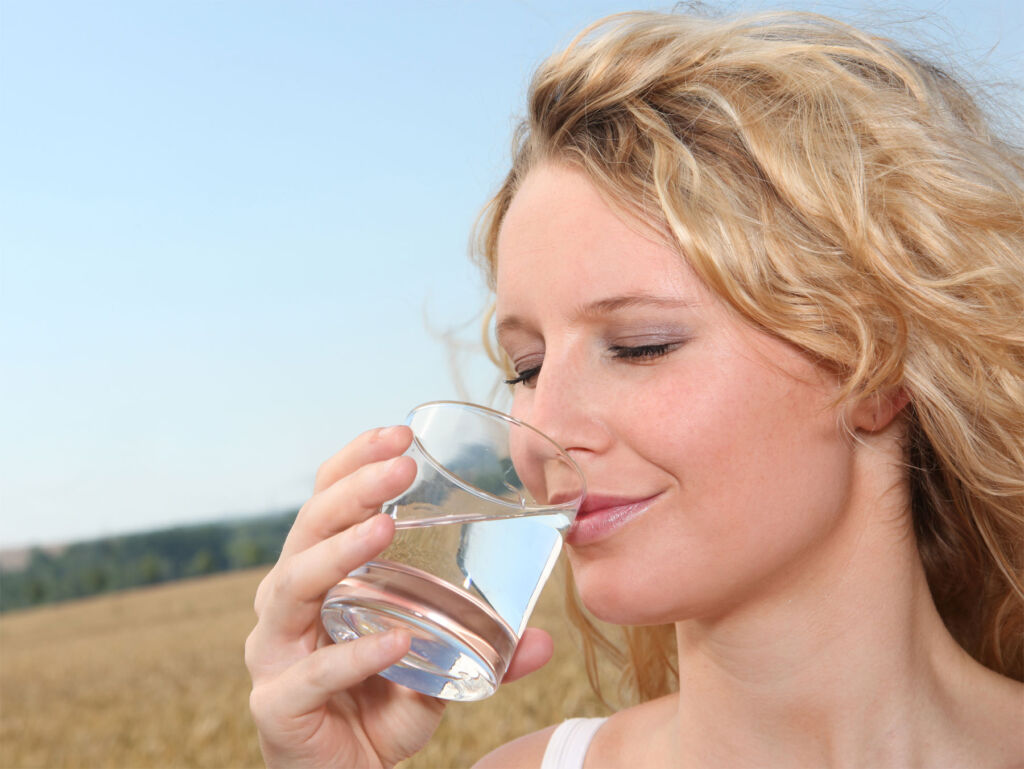

The British weather has recently been somewhat ‘hit and miss’, and many parts of the country are still waiting for the warmest days. However, when they do arrive, everyone needs to ensure they are sufficiently hydrated, and in this piece, we’ll explain how to do it in the healthiest possible way.
The UK’s tap water is often lauded as amongst the safest and purest water in the world, thanks to its strict testing standards. However, things are not quite as they would appear. Around the UK, tap water quality varies, and although the words ‘Pure and purest’ are frequently bandied around when describing it, what’s coming out of the taps could be better.


With the warmest weather approaching, it is almost certain that hundreds of thousands, if not millions, will be heading out into the sunshine, topping up on their Vitamin D, trying to get a tan and, of course, sweating.
Although producing Vitamin D is undoubtedly a huge benefit, alongside some (hopefully) fresh air, becoming dehydrated is not, which is why many will be topping up with glasses of water from the tap or shop-bought varieties.
What might surprise some of those reading this is tap water, and indeed, standard off-the-shelf spring water from a shop is not as pure as one would imagine.
Recently we conducted some tests using a dedicated water quality tester and were shocked to discover that the quality of tap water and bottled spring water was leaps and bounds from what we thought they were.
What’s lurking inside?
Many might not be familiar with PFAS chemicals, also known as ‘Forever Chemicals’; the technical term used to describe them is per- and polyfluoroalkyl substances. These names are a ‘catch-all’ for 10,000, perhaps more, chemicals that have been with us since the 1940s and are used in many everyday household items.
It’s only in recent years we have begun to understand how dangerous they can be to one’s health. The reason why they are called forever chemicals is they do not degrade biologically or naturally in the environment and are in almost every water source on the planet.
Worryingly, ongoing medical research is linking them to multiple ‘serious diseases’, including cancers, developmental problems, and more.
However, there could be some hope on the horizon, as a recent study may have uncovered a way to eliminate them via thermal induction heating. However, it will be some time (we presume) before this type of technology finds its way into Britain’s water companies, if it is even possible, which leaves us with a problem that requires a solution.
The solution is probably simpler than most would think.
There are water filters currently on the market that claim to be able to remove these chemicals, and one that we’ve tested, that comes in at a very affordable price is the ZeroWater filter (below).
In our tests, we found the ZeroWater Filter Jug was able to create the cleanest water possible; in fact, it registered 0.0 for contaminants, which is astonishing when you consider that our tap water averaged around 160, and bottled spring water came in at just under 100 (97), and it even bettered the score produced by rainwater direct from the sky.
Therefore, if you want to consume water that is free from all contaminants, the ZeroWater filter jugs are an ideal place to start.
Is drinking water enough to keep you hydrated?
If you regularly consume a healthy balanced diet with a good amount of greens, drinking clean water should keep you sufficiently hydrated when out and about in the sun.
Each one of us has an in-built ‘thirst mechanism’ which helps ensure we drink only what we need. It is best not to force yourself to drink more water than your body requires, as this will cause an imbalance, potentially lowering your electrolyte levels—having low electrolyte levels can cause weakness, confusion, cramping and far worse.
If you are engaging in activities causing you to sweat excessively, you might need to top up your electrolytes. A healthy drink you can make at home that will help in keeping you hydrated requires just three ingredients: filtered water, Himalayan salt and lemon juice.
Use a glass container or one free of PFAS chemicals. Fill it with filtered water, add half a teaspoon of the grounded Himalayan salt, squeeze in some lemon juice, and mix it. If you must add a bit of sweetness, then try adding a spoonful of honey to the mix.
The result is an electrolyte drink without a hefty price tag and fancy packaging that will keep you on the right track to staying hydrated when enjoying the sunshine.
We want all of our readers to enjoy the warmer weather and grab the opportunity to top up their Vitamin D levels.
To ensure you do so in the safest possible way, we recommend that you don’t be shy about donning sunscreen, preferably wear a hat and make sure you stay hydrated by drinking pure filtered water free of PFAS chemicals from a chemical-free vessel such as glass. In addition, if possible, add an electrolyte-boosting drink to your bag, like the one we’ve described above or drink one before heading out.
For more information on the ZeroWater range of filters, visit https://zerowater.co.uk/.
Read more health guides, news and features here.
